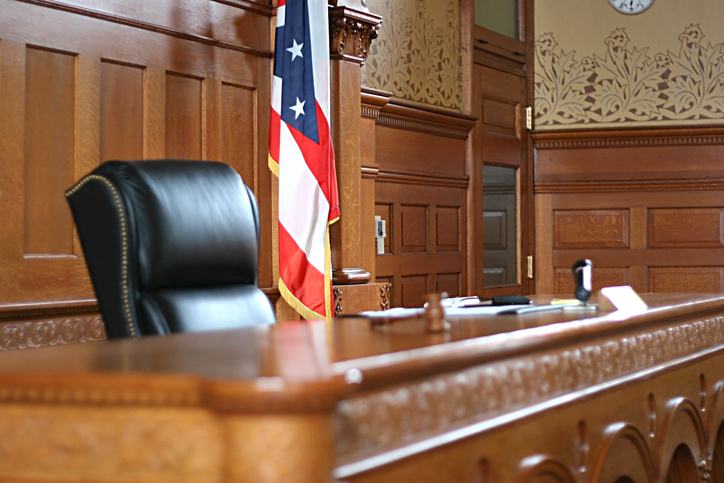The Price Whistle-Blowers Pay for Secrets

by PAUL SULLIVAN
A $104 million award for a whistle-blower is probably enough of an incentive to make most people divulge secrets about their employer, or even their friends, for that matter. The award, the largest ever paid by the Internal Revenue Service, went to Bradley C. Birkenfeld last week for revealing secrets about the Swiss banking system.
But lawyers and government officials had this warning for anyone thinking about following in Mr. Birkenfeld’s footsteps: Make sure you understand what you are getting into.
“It’s a life-changing experience,” said John R. Phillips, founder of the law firm Phillips & Cohen and the man credited with devising the amendments that strengthened the government antifraud law, the False Claims Act, in 1986. “If you look at the field of whistle-blowers, you see a high degree of bankruptcies. You may find yourself unemployable. Home foreclosures, divorce, suicide and depression all go with this territory.”
As if that were not sobering enough, he added, “You can’t believe how long these things take.”
And the payoff for putting your career and family at risk is usually a fraction of what Mr. Birkenfeld received. Last year, the I.R.S. paid $8 million to 97 people. This year, it said it was on track to pay $24 million to about 100 people, excluding the amount awarded to Mr. Birkenfeld.
But even the Justice Department, which administers awards through the False Claims Act, generally pays out 16.8 percent of what it takes in, and the average penalty is $2 million to $3 million. That works out to about $330,000 to $500,000, before taxes and lawyer fees are deducted.
That is a not a lot of money considering the risks. (Mr. Birkenfeld will probably pocket around $40 million, if the usual third of his award goes to his lawyers and 40 percent of what is left goes to taxes.)
Still, the interest in inducing whistle-blowers to come forward is on the rise. Under the Dodd-Frank Act, the Securities and Exchange Commission created the Office of the Whistleblower. It began operating in August 2011, and received 2,700 tips in the first year, said Sean McKessy, chief of the office.
“Not every tip was a home run, but I’ve been surprised by the quality,” he said. “We require that people sign a declaration under penalty of perjury that the information they are submitting is true. It’s a control. We didn’t want to be inundated with nonsense.”
Last month, the office made its first award of $50,000, which was a third of the fine collected. Mr. McKessy defended what was a meager sum by whistle-blower standards, saying he would be happy if his office consistently paid out small sums over many years. “That will show that we’re getting to things before they get to a catastrophic level,” he said.
So if you still want to be a whistle-blower, what should you do?
The short answer is to think long and hard about it. All the lawyers I talked to — and they’ve all made millions of dollars from cases like these — said they discouraged anyone who walked into their offices from becoming a whistle-blower. Doing the right thing, they said they tell their visitors, will be emotionally costly, even if there’s eventually a monetary award.
“There is a 100 percent chance that you will be unemployed — the question is, Will you be forever unemployable?” said Patrick Burns, a spokesman for Taxpayers Against Fraud. “The other 100 percent factor is the person who fired you, the person who designed and implemented the fraud, won’t be fired. He’ll probably be promoted again.”
Stephen M. Kohn, one of Mr. Birkenfeld’s lawyers and the author of “The Whistleblower’s Handbook,” said that despite laws to protect whistle-blowers against retaliation, companies still marginalized and harassed employees who came forward.
Then, there is the length of these trials to consider. Mr. Phillips said he spent 10 years representing two of the whistle-blowers in a case against GlaxoSmithKline that centered on accusations that it promoted its antipsychotic drugs for unapproved uses. The case was settled in July for $3 billion.
There was a divide on how much the award mattered to whistle-blowers. Mr. Kohn said the rewards were often the deciding factor in whether to go ahead with a case.
Other people said whistle-blowers were motivated more by the desire to right a wrong, particularly in instances where people’s lives were at risk. “When people talk about the big whistle-blower payouts, I say, you don’t get it,” Mr. Burns said. “You don’t see the train of pain I see every day. They can’t tell you their story without quivering and crying, even though they’re millionaires.”
But since the failure rate of these cases is so high — 80 percent are not pursued by the Justice Department program — whistle-blowers want confidentiality. That is not always possible.
When people come forward under the False Claims Act, their identity may be protected at first, but since they are essentially filing a case on behalf of the United States, it will eventually come out.
When people send claims to the I.R.S. and S.E.C. programs, these are considered administrative actions, not cases, which gives whistle-blowers a better chance of anonymity.
“We can’t guarantee their name won’t come out since they may be called as a witness,” said Stephen A. Whitlock, director of the I.R.S. Whistleblower Office. “Generally when it does get out, it’s because of something the whistle-blower did, not something we did.”
So who makes a good whistle-blower? Someone who has a lot of detailed information that the government could not learn about otherwise. But since the people who have that kind of information are usually high-ranking and have a lot to lose, they are not easy to find.
This is where Mr. Kohn said the headline-making awards were so important. “It’s pie in the sky,” he said. “But it is what it takes to have an employee risk everything.”
Mr. Birkenfeld’s award, though, is complicated. Depending on your point of view, he is either a felon who was complicit in the crime he reported and does not deserve his reward or he is a new type of whistle-blower — one with knowledge of a complicated crime that came from being part of it.
His lawyer said paying a reward to someone like Mr. Birkenfeld sent a positive message. “These laws are designed to induce those who may have been participants and done lots of bad things for years to come forward,” he said. “They’re designed to instill distrust among the conspirators, especially in a complex white-collar fraud.”
Mr. Birkenfeld is being credited with unlocking billions of dollars of tax revenue that had been hidden in offshore banking accounts.
By law, the I.R.S. cannot comment on individual cases. But in general, it said that to get good information, it may need to rely on people who do bad things. “The people who will know what is going on often times don’t have clean hands,” Mr. Whitlock said. “The law recognizes that, and that’s O.K.”
(The statute draws a distinction between a participant, who is eligible for an award, and the mastermind, who is not.)
Mr. Kohn, who started defending whistle-blowers in the 1980s, said there were still a few whistle-blowers who would risk everything without any chance of a reward. He cited another client, Richard Convertino, a former assistant United States attorney in Detroit, as an example of just how messy these suits can become.
Mr. Convertino prosecuted the first post-Sept. 11 terrorism case against a sleeper cell in Detroit. He won a conviction of three of the four men involved, but in 2003 he was removed from the case. The convictions were later overturned after he was charged with withholding evidence. Mr. Convertino said that he did not withhold information and that the Justice Department tried to discredit him because he was talking to Senator Charles E. Grassley, Republican of Iowa who is a champion of whistle-blowers, about failings in the Justice Department’s war on terror.
Even though the criminal case brought by the government against him was thrown out, Mr. Convertino said he had spent his life’s savings on nearly a decade of litigation to clear his name. And while he is working as a lawyer, he is not earning close to the $130,000 he made as an assistant United States attorney.
Still, he won a small victory in June when the United States Court of Appeals for the District of Columbia reinstated his case to determine the identity of the person who leaked information about an internal government investigation about him.
“I think we’re going to prevail,” he said. “I’m not going to get $104 million. But I’ll get a different pot of gold that is more important to me. I’ve lost everything, but I haven’t lost me.”




